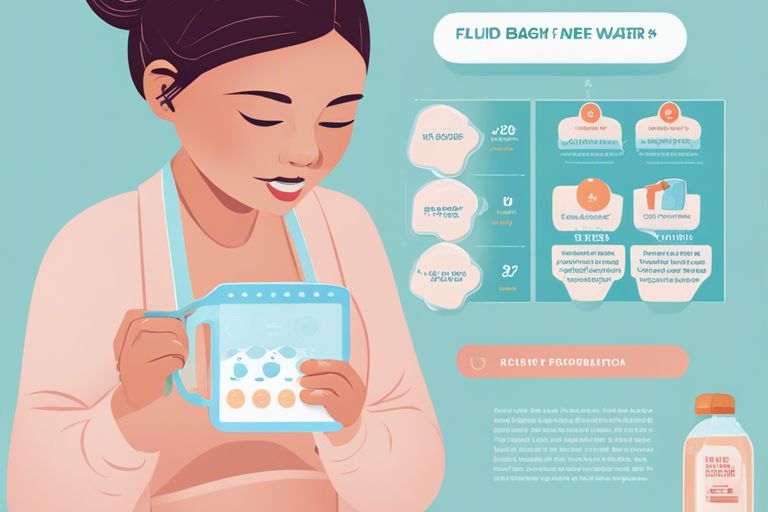tips, tricks and guides for parenthood
Hydration is crucial for babies as it plays a vital role in their overall health and development. It is imperative to ensure that babies are adequately hydrated to prevent dehydration, which can be dangerous. Babies' fluid intake needs vary depending on their age, with breastfed babies typically getting their hydration needs met through breast milk or formula. Monitoring the amount of fluids your baby consumes is important to ensure they are getting enough hydration for healthy growth and development.
Some Choose Water for Healthy Hydration for babies is crucial as they have specific fluid requirements to stay healthy and hydrated. Any parent should pay attention to signs of dehydration such as less frequent urination, dark urine, dry mouth, or fussiness. Meeting a baby's fluid needs is necessary for their overall well-being and development.
Some infants need more than just breast milk or formula; they may require additional fluids to stay hydrated, especially in hot weather. Understanding the types of fluids for babies is important, including water and diluted fruit juices. It is advisable to avoid offering sugary drinks or soda to babies.
Thou should always consult with a healthcare provider before introducing new fluids to your baby's diet.
| Fluid Type | Details |
| Water | Essential for hydration |
| Breast milk or formula | Main source of nutrition |
| Diluted fruit juices | Provides some necessary nutrients |
| Cooled boiled water | Safe option for additional hydration |
| Infant electrolyte solutions | Useful during illness or dehydration |

Life with a newborn is a beautiful whirlwind, and ensuring they are adequately hydrated is crucial. Newborns typically feed every 2-3 hours, so offering breastmilk or formula regularly is key. Keep an eye on wet nappies as a good indication of whether they are getting enough fluids.
Establishing a routine for 1-6 month-olds can help create a sense of predictability for both you and your baby. A structured feeding schedule, with 5-6 feeds a day, ensures they are getting the necessary nourishment. Remember to trust your instincts and respond to their hunger cues.
On their journey from Newborns to toddlers, 6-12 month-olds start experimenting with solid foods alongside breastmilk or formula. Introduce simple purees and soft finger foods gradually, ensuring they are still getting enough fluids through milk or water. Keep an eye out for any signs of choking and always supervise meal times.
To ensure your little one is getting enough fluids, observe their nappies. Adequate hydration is indicated by pale, odourless urine. Your baby should have around six wet nappies a day, demonstrating that they are receiving the right amount of fluids. Additionally, if your baby appears alert, content, and has good skin elasticity, these are all positive signs of proper hydration.
Intake can sometimes be tricky, especially when it comes to common concerns such as spitting up or refusing to drink. If your baby is consistently vomiting or producing little to no wet nappies, it may indicate a more serious issue. In such cases, it is crucial to seek medical advice immediately. However, it is normal for babies to have fluctuations in their fluid intake, so do not panic if your little one is occasionally fussy about drinking.
On the whole, understanding the fluid intake needs of babies is crucial for their growth and development. It is recommended to follow the guidelines provided by healthcare professionals to ensure that your baby is adequately hydrated. By offering small amounts of water along with breast milk or formula, introducing solid foods at the right time, and observing your baby's cues for thirst, you can help maintain their hydration levels. Recall, every baby is different, so it's crucial to pay attention to your little one's signals and consult with a healthcare provider if you have any concerns about their fluid intake. Keeping your baby well-hydrated is an important aspect of their overall well-being, so stay informed and provide the necessary fluids to support their healthy growth.
A: Babies aged 0-6 months generally get all the fluid they need from breast milk or formula. For babies aged 6-12 months, around 800ml (approx. 3 cups) of water or fluids a day is recommended.
A: It's important not to replace breast milk or formula with water before your baby is 6 months old. After 6 months, you can offer small amounts of water between feeds, but milk should still be their main source of nutrition.
A: Watch out for signs such as wet nappies (around 6-8 heavy wet nappies a day), a moist mouth, and tears when they cry. These are good indicators that your baby is getting enough fluids.
A: From around 6 months, you can introduce small sips of water with meals. Avoid offering fruit juice, squash, or fizzy drinks as these can be high in sugar and not suitable for babies.
A: Some signs of dehydration in babies include dry lips and mouth, fewer wet nappies (less than 6 a day), sunken eyes, and irritability. If you notice any of these signs, contact your healthcare provider.